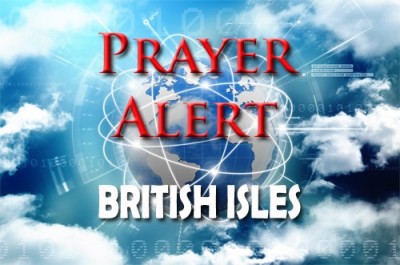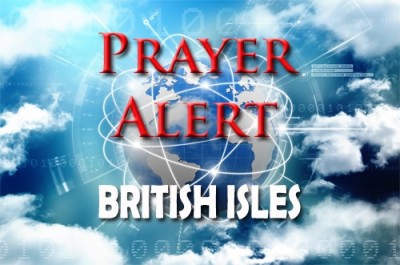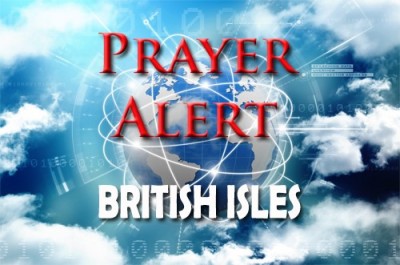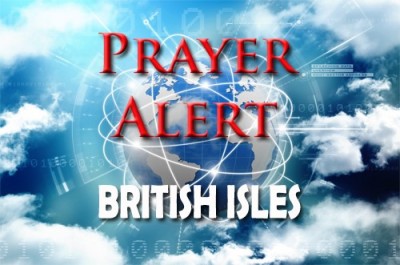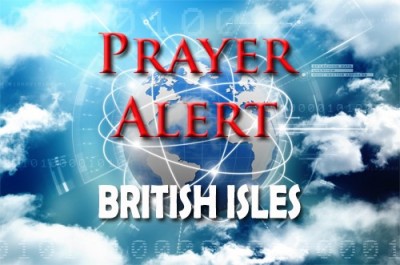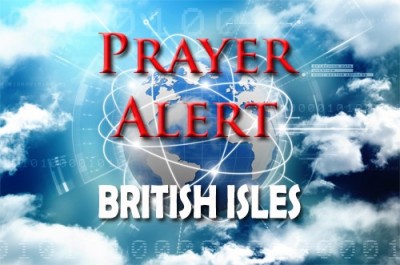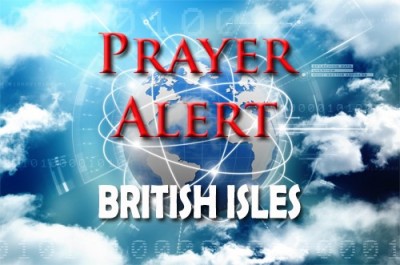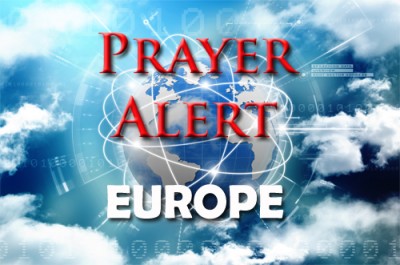Hope for the countryside
04 Apr 2019Christians throughout the countryside will be celebrating the death and resurrection of our Lord Jesus this Easter. Pray that the God of hope will fill them with all joy and peace as they delight in Him, so that they may overflow with hope by the power of the Holy Spirit. Pray also that many people will be drawn into the celebration through various services and activities held across this special time, and that they too might come to know the hope of the good news about Christ (Luke 9:6). As Brexit grinds on, rural affairs are not high on the political agenda; nevertheless they continue to present deep-seated policy challenges, prompting recent calls for a new post-Brexit comprehensive rural strategy to address issues such as infrastructure, labour shortage, housing and health care. Pray for wisdom for those in government and NGOs who are shaping policies and programmes for rural renewal.
Brexit: broken promises, inflamed tensions
04 Apr 2019The Conservative 2017 manifesto said, ‘The United Kingdom is leaving the EU and we will no longer be members of the single market or customs union’. Labour’s manifesto said, ‘Labour accepts the referendum result’. Psalm 15 says the ones who speak the truth from their heart; who keep an oath even when it hurts, and do not change their mind, will dwell with God. Currently the two parties are ‘talking’ of ways to bring about Brexit despite a paralysed parliament. Nextdoor, in the House of Lords, Bishop Donald Allister called on MPs to sacrifice some of their principles and unite for a Brexit solution. Outside, MPs are being intimidated by the public, and the police have 10,000 officers ready to deploy should no-deal violence in the streets erupt. The police chiefs’ chairman said people should think carefully to avoid inciting others to violence.
Lords debate RSE bill
04 Apr 2019After receiving 430 letters of concern over proposed new regulations for Relationships and Sex Education, the House of Lords will now publicly debate the issue first, rather than just voting. The House of Commons voted to pass the new regulations on 27 March, but the Lords still have the power to prevent them from becoming law. The date of the debate has not yet been set. Pray that as the Lords debate the proposals, they will recognise the concerns of Christians and many other parents about the steady erosion of parents’ freedom to determine how to teach their children about morals, sexuality and gender ‘in conformity with their religious and philosophical convictions’. This freedom is guaranteed by the first protocol to the European Convention on Human Rights.
Praying for justice in England and Scotland
04 Apr 2019There are more slaves today in the world than at any other point in history. Right now, over forty million people are trapped and exploited in slavery. Over 25% of these are children. IJM invites you to join them, standing in the gap and going into deeper intercession for the survivors who have been rescued and crying out for those who are still trapped; praying for the teams going into the darkest corners of the world. Come in May to London or Glasgow, prepared for a day of storytelling, inspired intercession, and worship. Join guest speaker Benson Shamala (IJM Kenya’s deputy director), Dr Amy Orr-Ewing, and singer-songwriter Lucy Grimble in London, or with 24-7 Prayer Scotland’s Crystal Cryer and worship group Ps & Gs Music in Glasgow. Pray for justice and courage to equip you to raise your voice against the strongholds of violence and be part of ending slavery for ever.
PM hosts youth violence summit
04 Apr 2019Theresa May has hosted an emergency summit, to tackle the epidemic of knife crime and youth violence. The Government plans to see teachers, nurses and police officers held to account if they fail to ‘spot warning signs’ of violent crime among young people. Over 100 experts will explore the scope and potential impact of new ideas, while kick-starting a further programme of action. Pray for Met police commissioner Cressida Dick, home secretary Sajid Javid, Patrick Green from the Ben Kinsella Trust, and Baroness Newlove, the victims’ commissioner for England and Wales, as they explore ways of supporting young people. Pray for good communication between the various strands of new systems to be implemented in the NHS, social services, probation services, police, and schools, so that warning signs are spotted when a young person is in danger.
The Inspectorate of Constabulary has said ‘inconsistent’ approaches to policing fraud in England and Wales leaves people at high risk of scams. One officer told its inquiry that a crime was not a priority if it didn’t ‘bang, bleed or shout’. Police said ‘significant’ work was under way to address the problems. By 2017 identity theft had reached epidemic levels. Recent police statistics show that over £190,000 a day is being lost in the UK by victims of cyber-crime, with people in their 30s the most-targeted group. The elderly are ‘under siege’ from scammers. Inspectors visited 11 police forces and other agencies that tackle fraud. One force filed 96% of the cases it received from a national intelligence bureau without further investigation, despite inspectors finding a good deal of evidence, including names of suspects, in some of the cases. Another force had only two dedicated fraud investigators.
Climate change
04 Apr 2019Professor Martin Siegert from the Grantham Institute at Imperial College London said that the last time CO2 levels were as high as they are now, there were trees at the South Pole, sea levels were 20 metres higher than they are now, and global temperatures were 3C-4C warmer. If we keep carbon emissions going at the current rate, by the end of the century we will have 1,000ppm, compared to the low 280ppm level of CO2 prior to the industrial revolution. The Bible says God created the light, land, sea, vegetation, fish, birds and every living creature and ‘saw that it was good’. The earth and everything on it reflect the wonder of God; our concern for creation should be rooted in our worship of the God who made it all.
Poland: Harry Potter books burnt
04 Apr 2019Priests at a Catholic parish in northern Poland have burnt books, including the Harry Potter series, and other items that their owners said had evil forces. Images from the burning at Gdansk’s Mother of Church parish on Sunday were posted on Facebook by a Catholic foundation that uses unconventional ways of religious work. In the pictures, flames are consuming an African wooden mask, figurines of elephants, and books on personality and magic, as well as those by J K Rowling, all brought in by parishioners. A priest and altar boys watched the book-burning. The foundation said the book-burning was intended to alert parishioners to bad influences which it says come from magic and the occult. Comments under the post condemned the action, recalling that it also happened in Nazi Germany before World War II.
